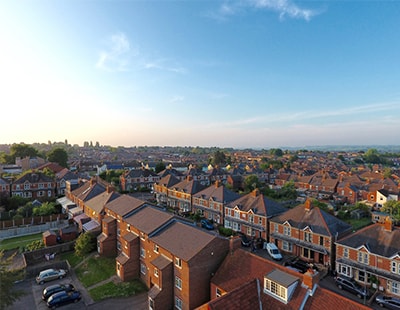House prices are falling at their fastest rate in 12 years, dropping £7,500 on average over the past 12 months, according to the Halifax.
Its index showed the average house price down 2.6 per cent over the past year - but taking into account inflation, it admits that prices have dropped 11.3 per cent in real terms.
Even so, the lender says the market is proving more resilient than many would expect with only a slight 0.1 per cent monthly decline in May, taking the typical house price to £285,932.
Halifax mortgages director Kim Kinnaird says: 'With very little movement in house prices over recent months, this rate of decline largely reflects the impact of historically high house prices last summer – annual growth peaked at 12.5 per cent in June 2022 – supported by the temporary Stamp Duty cut. To some extent the annual growth figure also masks the fluctuations we've seen in the market over the past 12 months.
“Average house prices are actually up by 1.5 per cent (£4,000) so far this year, with most of that growth coming in the first quarter, following the sharp fall in prices we saw at the end of last year in the aftermath of the mini-Budget. These latest figures do suggest a degree of stability in the face of economic uncertainty, and the volume of mortgage applications held up well throughout June, particularly from first-time buyers.”
However, she admits that the full effect of recent interest rate rise and continuing high inflation have probably yet to be felt in the housing market.
What do agents think?
Jeremy Leaf, north London estate agent and a former RICS residential chairman, says: “This slow puncture softening in house prices reinforces the message from other recent surveys that financial markets pricing in further interest rate increases is not helping buyer confidence. However, these figures are a little dated so don't yet fully reflect the recent sharp increases in mortgage payments.
“On the ground, sales are still proceeding often to those who are not dependent on mortgage finance but they are taking longer and often involve protracted renegotiations resulting in modest, rather than large, price falls.”
-
Chris Druce, senior research analyst at Knight Frank, says: “The fear factor over just how high the Bank of England will push the bank rate to tame inflation continues to grip the UK property market. While deals continue to be struck, buyers remain nervous and extremely price sensitive. This won’t change materially until we have surety about how high borrowing costs will go.
“It means that despite a period of relative stability, house prices have further to travel on their downwards journey. More pain will enter the system in the second half of this year as an increasing amount of fixed-term mortgages are renewed at higher rates. We expect prices will fall by 10 per cent, spread over the remainder of this year and next.”
-
Alex Lyle, director of Richmond estate agency Antony Roberts, says: “There has been a noticeable shift in pricing compared with a year ago as the depth of demand from buyers isn’t the same and the balance of power has shifted more towards those keen to purchase. An ultra-ambitious price a year ago could well have been achieved but now that property could stick.
“That said, there is still lots of activity in the market and a fair amount of stock under offer, although chains are long and some deals are taking longer to go through than any parties would wish. Those buyers who have been looking for an excuse to delay their purchase and wait until we have a clearer understanding of where rates are headed, are now doing so. Some vendors are taking a similar approach, sitting tight and waiting until the autumn in the hope that things will have settled down by then.”
Matt Thompson, head of sales at Chestertons, explains: “We are seeing more cash buyers but also house hunters who rather buy now before facing another potential hike in interest rates. This June, our branches conducted 20 per cent more viewings than in June of last year. The capital’s high rents are another contributing factor to London’s continuous buyer interest. As tenants are facing rent increases, many are reviewing their situation and conclude that, despite higher interest rates, buying can still present a financially attractive option.”
-
Nathan Emerson, the Propertymark chief executive, adds: “It is inevitable that people’s finances are going to be impacted by rising interest rates, and there is a higher chance of a fall through in a sale due to the changes in buyers’ finances.
“However, serious buyers and sellers are rightly putting their confidence in the market and the majority are successfully and affordably moving home. Negotiations being made on properties are allowing wiggle room and bringing down the overall cost from the pandemic house price boom which was desperately needed as they were previously unrealistic and unsustainable.”
-
And Iain McKenzie, CEO of The Guild of Property Professionals comments: “The property market is showing resilience In the face of high interest rates, with only a slight fall in house prices compared to last month. The annual figure is a little more gloomy, but although this will be of little comfort to sellers, it is nothing we weren’t expecting. Prices had to start to come down, though they are still way above pre-pandemic levels.
“The South of England is seeing the greatest decline across the UK, but it’s worth bearing in mind that many parts of the South have become unaffordable for first-time buyers. Prices have become inflated well beyond typical mortgage offers, and a readjustment in the market has been on the horizon for a while.”












.png)


.png)




Join the conversation
Be the first to comment (please use the comment box below)
Please login to comment